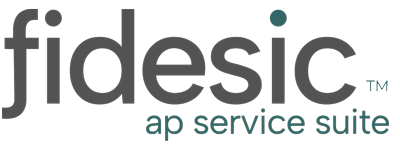How to Prepare for an Accounts Receivable Audit
Whether internal or external, financial audits can be an extremely stressful time. Accounts receivable auditing is among the most critical of financial audits. An internal AR audit will give deep insight into the business' incoming cash and can be a determining factor in planning the financial future of the company. External audits, such as a government agency audit, will comb through your financial records for fraud and finable mistakes. This post will hopefully help to ease some of the stress by giving you some tips and things to know so you can better prepare for an audit of accounts receivable.
What to Expect: Basic Accounts Receivable Audit Procedures
Auditors will be looking into your accounts receivable records, looking for the following:
- Discrepancies between accounts receivable record and your balance sheet
- Fraud indicators such as receivables that don't exist
- Inaccuracies in returns records
- Sales recording in the wrong period
- Inaccurate balances in the receivables records
- Security and traceability policies and procedures in place to prevent cash and check fraud
The following account receivable audit procedures are likely to be included during and accounts receivable audit:
- Analyze all financial data to try and spot inconsistencies over time between sales and AR records
- Review of customer orders to determine if sent invoices match the orders your customers made. They may also reach out to your customers to ensure your AR record matches your customers' records.
- Comparing balance sheet and receivables record
- Review your shipping records and match them against your invoices, including dates and balances
- Audit customer account credits for discrepancies and ensure credits were issued in the correct financial period
- Review cash and check transactions and compare them against bank deposit records
Of course, there is no way to know for sure if your auditors will take all of these steps or audit other areas, but addressing all of the areas on this list should put you in a good position to prepare for an AR audit.
How to Prepare for an AR Audit

The single best thing you can do to prepare your business for an accounts receivable audit and stay prepared moving forward, is implementing an Accounts Receivable automation solution.
AR Automation software is proven to reduce errors and prevent fraud by reducing manual tasks and streamlining with process workflows.
While you may be able to achieve these steps manually, accounts receivable automation software will help you achieve the steps quicker and more cost effectively. 5 key reasons to get integrated accounts receivable automation now
- Ensure your invoices and other sales transactions are accurate. Again the way to this is reduce manual tasks to immediately boost accuracy. Ideally you should be able to send invoices directly from your accounting system
- Automatically update your accounting system with all AR transactions
- Build workflows to ensure more accountability and traceability
- Make sure reporting is simplified to accelerate the audit process itself
- Collect any outstanding payments to reduce your AR balance
- Accurately track customer account credits with a system that offers traceability
- Accurately track returns
Auditing Accounts Receivable can be a stressful and time-consuming process, but a business will be much better prepared if they are equipped with agile, accurate and fast management & reporting abilities. When audit time comes, the right AR software can greatly reduce your stress and make the process go much more smoothly. You may be interested in this post: 7 Key Functions to Look for in Receivables Automation
Are you a Microsoft Dynamics GP user? Fidesic AR is your best option for accounts receivable automation.






